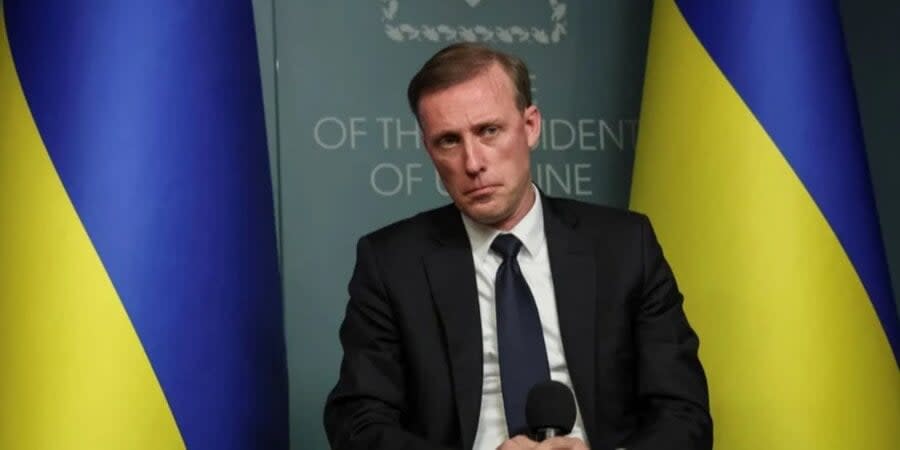Why the West Underestimated Ukraine and Continues to Doubt its Victory

Read also: NSDC head calls for 'enough weapons' to defeat Russia, not peace initiatives
One of the most interesting questions for anyone who wants to understand the events unfolding in and around Ukraine is why the Western experts who predicted its quick defeat at Russia’s hands were wrong. This question is not only an intellectual curiosity. Western allies continue to doubt our ability to defeat Moscow on the battlefield, which is reflected in insufficient support for Ukraine's offensive capabilities.
There are a variety of reasons why Western observers make this mistake. I want to examine two ways in which our minds tend to misunderstand the probability of events. We have at least two simple, intuitive rules, scientifically knowns as availability and representativeness heuristics. They are activated automatically when we try to estimate the probability of an event.
Read also: Kyiv irked by Western reluctance to invite Ukraine to join NATO
What is the probability of a 30-year-old man having a heart attack? Although most people don't know the relevant statistics, the answer will quickly pop into your head. If this has happened to people you know, the probability will trend higher. If not, then it won’t. This is the availability heuristic – the tendency to judge the probability of an event based on how easily examples of it come to one’s mind.
U.S. professor Eliot Cohen believes that Western experts who predicted the quick defeat of Ukraine relied on this intuitive rule. Instead of using more reliable, but also more difficult forecasting methods, they relied on easy and accessible information that simply felt right: primarily the quantitative superiority of the Russian army over the Ukrainian one (in equipment, personnel, and funding). Because this advantage was so overwhelming on paper, they concluded that Russia had a similarly outsized advantage on the battlefield. A more rational, but also much more complex analysis would require taking into account other factors that are more challenging to quantify: the rot of corruption in the Russian army, the resilience and motivation of Ukrainians, and the leadership qualities of President Zelenskyy. However, analysts did not consider these, so their forecasts were proven wrong.
For the most part, this intuition works well, but it sometimes leads to errors
Another bias that led to so many incorrect predictions is the representativeness heuristic. For example, imagine two men standing in front of you, ready to start a fight: one is short and thin but has his wits about him, and the other is a big thug. Who is likely to be the winner in this battle? It is not difficult to guess what answer will automatically come to your mind – the one who looks like a winner will win. This would be an example of the representativeness heuristic – the tendency to determine the probability that X is Y based on how similar X is to Y. – the small but intelligent beats the bully.
Experts also have relied on this heuristic to evaluate the prospects of Ukraine and Russia in this war. It also suggests a clear advantage for Russia, which seemed like a military superpower – a massive country with a large army that instilled fear in most of the world. Russia actively played into this, propagating information about the size and skill of its army, having the latest types of weapons, and impressive troop numbers. On the other hand, Ukraine did not seem to be a strong military power: political instability, relatively inadequate funding of the army, relatively small size, and a president who was, until recently, a comedian. It did not look like a military power. Therefore, it is likely that the similarity of either country to some other examples the experts had in mind, and dissimilarity to others, led to other erroneous conclusions about the war.
Read also: Russian propaganda claims Ukraine tried to attack Moscow three times on May 9
A critical reader, of course, can point out that such mistakes are typical for ordinary experts who rely on open sources of information. But more serious analysts responsible for preparing reports for the leaders of their countries had access to a much more considerable amount of data. They probably used more reliable methods of processing it, beyond just their intuition. I agree with this, but at the same time, I would point out another interesting property of our minds. Too often, we make conclusions based on our intuition and then interpret all subsequent information to fit those conclusions. So, having made the first intuitive conclusions about the superiority of Russia, Western analysts would unconsciously interpret other information to correspond with their initial biases, excluding other facts. As numerous studies show, this way of thinking is typical of everyone, and respected experts and analysts are no exception. After all, it is quite possible that there were experts who had a different point of view, but because it contradicted the intuitions of the majority, their opinions were ignored.
Read also: Ukrainians still committed to victory, staying in Ukraine — new survey
The more complex and large-scale events are, the more difficult it is to predict them. Therefore, no one can know for sure how everything will end in this war. It would be necessary to consider a vast number of factors, including unexpected ones, which are beyond the power of any living mind or artificial intelligence. However, it is in our power to do everything possible to prepare for future battles and believe in our victory. Our beliefs and motivation were one of those factors that experts once underestimated. So, let's surprise them one more time. We’re getting quite good at it.
We’re bringing the voice of Ukraine to the world. Support us with a one-time donation, or become a Patron!
Read the original article on The New Voice of Ukraine

